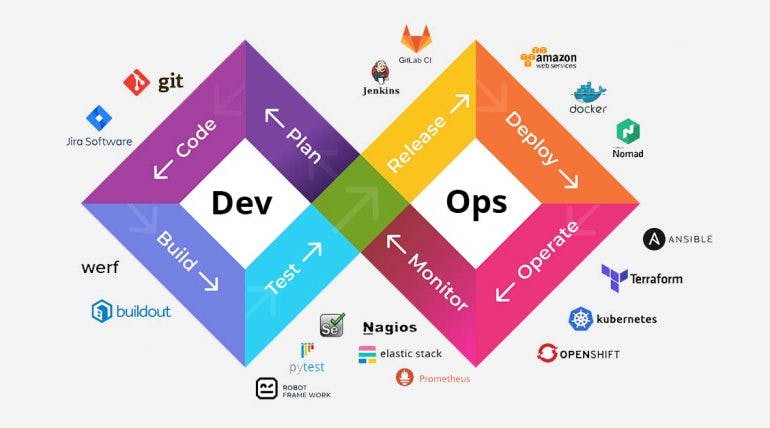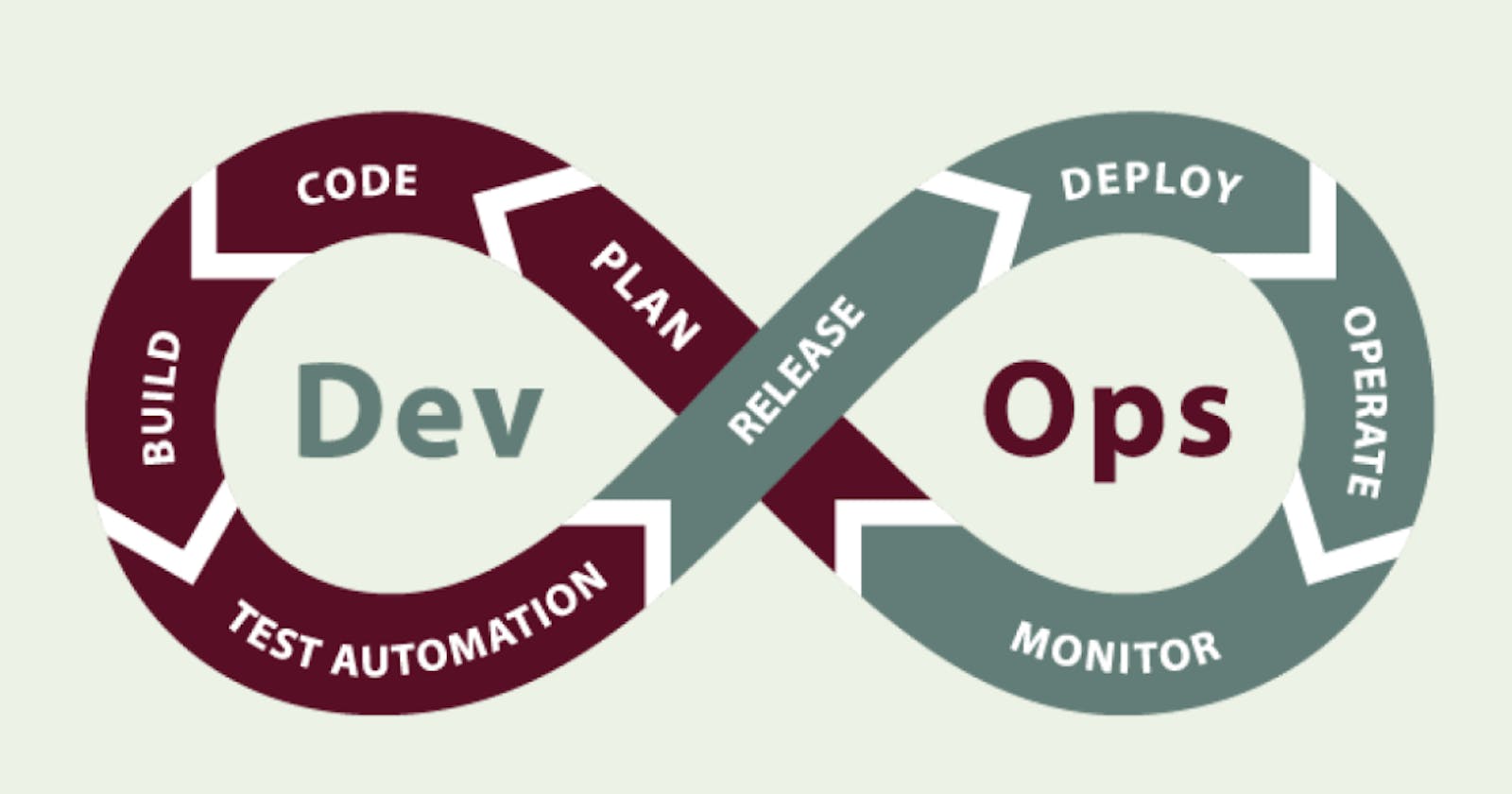Introduction to DevOps
First Thing That Comes to Our Mind That What is DevOps?😃
So Let's Start The Journey To Learn Devops🚀
The term DevOps combines two words i.e Development and operations.
DevOps is a methodology that allows a single team to manage the entire application development life cycle, testing, deployment, and operation.
The objective of DevOps is to shorten the systems development life cycle.
DevOps is a software development approach through which superior Quality Software Can be developed quickly and with more Reliability.
The DevOps culture is implemented in several phases with the help of several tools
The first phase is the planning phase, where the development team puts down a plan keeping in mind the application objectives that are to be delivered to the customer. once the plan is made the coding begins. The development teams work on the same code and different versions of the code are stored in the repository with the help of tools like git and merged when required this process is called version control. The code is made executable with tools like maven and Gradle in the build stage after the code is successfully built it is then tested for any bugs and errors. The most popular tool for automation for testing selenium is once the code has passed several manual and automated tests we can say that it is ready for deployment and is sent to be operation team. The operation team now deploys the code to the working environment the most prominent tool used to automate these phases are Ansible, Docker, and Kubernetes after the deployment of the product is continuously monitored and Nagios is one of the top tools for automating this phase. The feedback received after this phase is sent back to the planning phase and this is what forms the core of the DevOps life cycle which is the integration phase Jenkins is the tool that sends the code for building and testing if the code passes the test it is sent for the deployment and this is referred to as continuous integration.
Automation in DevOps
DevOps automation combines software engineering and information technology practices to enable automation and continuous delivery of software-related products. Automation primarily aims to automate software development, testing, deploying, and monitoring. DevOps automation scripts are the tools used to automate the DevOps processes, allowing developers to focus on their core tasks and speed up software delivery.
Why are we learning this?🤔
The Ans Is for 👇
Greater Scalability
Deploy faster-50%
Better Recovery time
Improved Security
Early error detection
Production support
DevOps life cycle

Terms in DevOps
Provisioning — The server is ready with OS, software, and networking.
Deployment — Adding or upgrading software on the server.
Orchestration — coordinated operations on multiple systems.
Configuration management — managing server configuration via files such as ram, space, dependency software, etc.
Imperative (procedural) — commands to produce the desired state
Declarative (procedural) *— the desired state is defined and tools will achieve it
Idempotent *— repeat execution and same result.
Blue Green Deployment — Identical deployment, used as a switch.
Continuous Integration — Build and unit test at every check-in.
Continuous Delivery — deploy on production live environment at every check-in.
Continuous Deployment — After unit testing, deploy changes to production in small batches.
Thank you for reading! :)😊
Arijit manna
